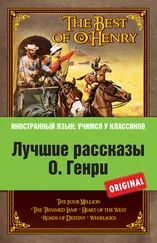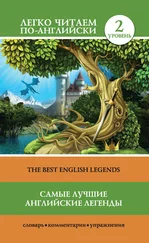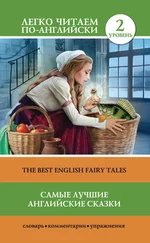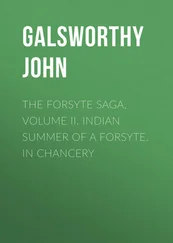June had never really got on well with her who had reprehensibly taken her own mother’s place; and ever since old Jolyon died she had been established in a sort of studio in London. But she had come back to Robin Hill on her stepmother’s death, and gathered the reins there into her small decided hands. Jolly was then at Harrow; Holly still learning from Mademoiselle Beauce. There had been nothing to keep Jolyon at home, and he had removed his grief and his paint-box abroad. There he had wandered, for the most part in Brittany, and at last had fetched up in Paris. He had stayed there several months, and come back with the younger face and the short fair beard. Essentially a man who merely lodged in any house, it had suited him perfectly that June should reign at Robin Hill, so that he was free to go off with his easel where and when he liked. She was inclined, it is true, to regard the house rather as an asylum for her proteges! but his own outcast days had filled Jolyon for ever with sympathy towards an outcast, and June’s ‘lame ducks’ about the place did not annoy him. By all means let her have them down – and feed them up; and though his slightly cynical humour perceived that they ministered to his daughter’s love of domination as well as moved her warm heart, he never ceased to admire her for having so many ducks. He fell, indeed, year by year into a more and more detached and brotherly attitude towards his own son and daughters, treating them with a sort of whimsical equality. When he went down to Harrow to see Jolly, he never quite knew which of them was the elder, and would sit eating cherries with him out of one paper bag, with an affectionate and ironical smile twisting up an eyebrow and curling his lips a little. And he was always careful to have money in his pocket, and to be modish in his dress, so that his son need not blush for him. They were perfect friends, but never seemed to have occasion for verbal confidences, both having the competitive self-consciousness of Forsytes. They knew they would stand by each other in scrapes, but there was no need to talk about it. Jolyon had a striking horror – partly original sin, but partly the result of his early immorality – of the moral attitude. The most he could ever have said to his son would have been:
“Look here, old man; don’t forget you’re a gentleman,” and then have wondered whimsically whether that was not a snobbish sentiment. The great cricket match was perhaps the most searching and awkward time they annually went through together, for Jolyon had been at Eton. They would be particularly careful during that match, continually saying: “Hooray! Oh! hard luck, old man!” or “Hooray! Oh! bad luck, Dad!” to each other, when some disaster at which their hearts bounded happened to the opposing school. And Jolyon would wear a grey top hat, instead of his usual soft one, to save his son’s feelings, for a black top hat he could not stomach. When Jolly went up to Oxford, Jolyon went up with him, amused, humble, and a little anxious not to discredit his boy amongst all these youths who seemed so much more assured and old than himself. He often thought, ‘Glad I’m a painter’ for he had long dropped under-writing at Lloyds – ’it’s so innocuous. You can’t look down on a painter – you can’t take him seriously enough.’ For Jolly, who had a sort of natural lordliness, had passed at once into a very small set, who secretly amused his father. The boy had fair hair which curled a little, and his grandfather’s deepset iron-grey eyes. He was well-built and very upright, and always pleased Jolyon’s aesthetic sense, so that he was a tiny bit afraid of him, as artists ever are of those of their own sex whom they admire physically. On that occasion, however, he actually did screw up his courage to give his son advice, and this was it:
“Look here, old man, you’re bound to get into debt; mind you come to me at once. Of course, I’ll always pay them. But you might remember that one respects oneself more afterwards if one pays one’s own way. And don’t ever borrow, except from me, will you?”
And Jolly had said:
“All right, Dad, I won’t,” and he never had.
“And there’s just one other thing. I don’t know much about morality and that, but there is this: It’s always worth while before you do anything to consider whether it’s going to hurt another person more than is absolutely necessary.”
Jolly had looked thoughtful, and nodded, and presently had squeezed his father’s hand. And Jolyon had thought: ‘I wonder if I had the right to say that?’ He always had a sort of dread of losing the dumb confidence they had in each other; remembering how for long years he had lost his own father’s, so that there had been nothing between them but love at a great distance. He under-estimated, no doubt, the change in the spirit of the age since he himself went up to Cambridge in ‘65; and perhaps he underestimated, too, his boy’s power of understanding that he was tolerant to the very bone. It was that tolerance of his, and possibly his scepticism, which ever made his relations towards June so queerly defensive. She was such a decided mortal; knew her own mind so terribly well; wanted things so inexorably until she got them – and then, indeed, often dropped them like a hot potato. Her mother had been like that, whence had come all those tears. Not that his incompatibility with his daughter was anything like what it had been with the first Mrs. Young Jolyon. One could be amused where a daughter was concerned; in a wife’s case one could not be amused. To see June set her heart and jaw on a thing until she got it was all right, because it was never anything which interfered fundamentally with Jolyon’s liberty – the one thing on which his jaw was also absolutely rigid, a considerable jaw, under that short grizzling beard. Nor was there ever any necessity for real heart-to-heart encounters. One could break away into irony – as indeed he often had to. But the real trouble with June was that she had never appealed to his aesthetic sense, though she might well have, with her red-gold hair and her viking-coloured eyes, and that touch of the Berserker in her spirit. It was very different with Holly, soft and quiet, shy and affectionate, with a playful imp in her somewhere. He watched this younger daughter of his through the duckling stage with extraordinary interest. Would she come out a swan? With her sallow oval face and her grey wistful eyes and those long dark lashes, she might, or she might not. Only this last year had he been able to guess. Yes, she would be a swan – rather a dark one, always a shy one, but an authentic swan. She was eighteen now, and Mademoiselle Beauce was gone – the excellent lady had removed, after eleven years haunted by her continuous reminiscences of the ‘well-brrred little Tayleurs,’ to another family whose bosom would now be agitated by her reminiscences of the ‘well-brrred little Forsytes.’ She had taught Holly to speak French like herself.
Portraiture was not Jolyon’s forte, but he had already drawn his younger daughter three times, and was drawing her a fourth, on the afternoon of October 4th, 1899, when a card was brought to him which caused his eyebrows to go up:
MR. SOAMES FORSYTE
THE SHELTER, CONNOISSEURS CLUB,
MAPLEDURHAM. ST. JAMES’S.
But here the Forsyte Saga must digress again….
To return from a long travel in Spain to a darkened house, to a little daughter bewildered with tears, to the sight of a loved father lying peaceful in his last sleep, had never been, was never likely to be, forgotten by so impressionable and warm-hearted a man as Jolyon. A sense as of mystery, too, clung to that sad day, and about the end of one whose life had been so well-ordered, balanced, and above-board. It seemed incredible that his father could thus have vanished without, as it were, announcing his intention, without last words to his son, and due farewells. And those incoherent allusions of little Holly to ‘the lady in grey,’ of Mademoiselle Beauce to a Madame Errant (as it sounded) involved all things in a mist, lifted a little when he read his father’s will and the codicil thereto. It had been his duty as executor of that will and codicil to inform Irene, wife of his cousin Soames, of her life interest in fifteen thousand pounds. He had called on her to explain that the existing investment in India Stock, to meet the charge, would produce for her the interesting net sum of £430 odd a year, clear of income tax. This was but the third time he had seen his cousin Soames’ wife – if indeed she was still his wife, of which he was not quite sure. He remembered having seen her sitting in the Botanical Gardens waiting for Bosinney – a passive, fascinating figure, reminding him of Titian’s ‘Heavenly Love,’ and again, when, charged by his father, he had gone to Montpellier Square on the afternoon when Bosinney’s death was known. He still recalled vividly her sudden appearance in the drawing-room doorway on that occasion – her beautiful face, passing from wild eagerness of hope to stony despair; remembered the compassion he had felt, Soames’ snarling smile, his words, “We are not at home!” and the slam of the front door.
Читать дальше
Конец ознакомительного отрывка
Купить книгу
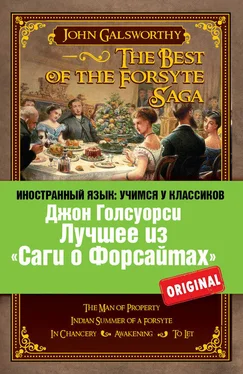
![Автор неизвестен Эпосы, мифы, легенды и сказания - Самые лучшие английские легенды [The Best English Legends]](/books/34729/avtor-neizvesten-eposy-mify-legendy-i-skazaniya-s-thumb.webp)
